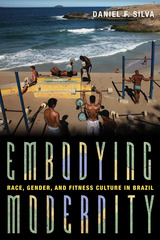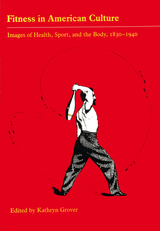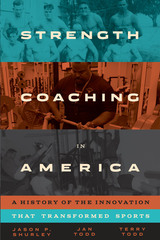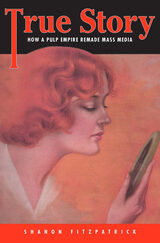
Bernarr Macfadden (1868–1955) entertained and instructed Americans for decades. He championed physical exercise, fasting, and diet reform and was the relentless scourge of established doctors. He presented his views in Physical Culture, a popular magazine featuring photographs of strong men and healthy women and articles promoting the healthy life. While some critics derided him as a health nut, no one could dispute his genius as a magazine publisher. He established the world’s greatest magazine publishing empire through the innovation of such popular publications as True Story, the first confession magazine; True Detective; and many others.


Embodying Modernity examines the current boom of fitness culture in Brazil in the context of the white patriarchal notions of race, gender, and sexuality through which fitness practice, commodities, and cultural products traffic. The book traces the imperial meanings and orders of power conveyed through “fit” bodies and their different configurations of muscularity, beauty, strength, and health within mainstream visual media and national and global public spheres. Drawing from a wide range of Brazilian visual media sources including fitness magazines, television programs, film, and social media, Daniel F. Silva theorizes concepts and renderings of modern corporality, its racialized and gendered underpinnings, and its complex relationship to white patriarchal power and capital. This study works to define the ubiquitous parameters of fitness culture and argues that its growth is part of a longer collective nationalist project of modernity tied to whiteness, capitalist ideals, and historical exceptionalism.

If a shared American creed still exists, it’s a belief that exercise is integral to a life well lived. A century ago, working out was the activity of a strange subculture, but today, it’s almost impossible to avoid exhortations to exercise: Walk 5K to cure cancer! Awaken your inner sex kitten at pole-dancing class! Sweat like (or even with) a celebrity in spin class! Exercise is everywhere.
Yet the United States is hardly a “fit nation.” Only 20 percent of Americans work out consistently, over half of gym members don’t even use the facilities they pay for, and fewer than 30 percent of high school students get an hour of exercise a day. So how did fitness become both inescapable and inaccessible?
Spanning more than a century of American history, Fit Nation answers these questions and more through original interviews, archival research, and a rich cultural narrative. As a leading political and intellectual historian and a certified fitness instructor, Natalia Mehlman Petrzela is uniquely qualified to confront the complex and far-reaching implications of how our contemporary exercise culture took shape. She explores the work of working out not just as consumers have experienced it, but as it was created by performers, physical educators, trainers, instructors, and many others.
For Petrzela, fitness is a social justice issue. She argues that the fight for a more equitable exercise culture will be won only by revolutionizing fitness culture at its core, making it truly inclusive for all bodies in a way it has never been. Examining venues from the stage of the World’s Fair and Muscle Beach to fat farms, feminist health clinics, radical and evangelical college campuses, yoga retreats, gleaming health clubs, school gymnasiums, and many more, Fit Nation is a revealing history that shows fitness to be not just a matter of physical health but of what it means to be an American.


Shortlisted for the North American Society for Sports History 2020 Monograph Prize
It’s hard to imagine, but as late as the 1950s, athletes could get kicked off a team if they were caught lifting weights. Coaches had long believed that strength training would slow down a player. Muscle was perceived as a bulky burden; training emphasized speed and strategy, not “brute” strength. Fast forward to today: the highest-paid strength and conditioning coaches can now earn $700,000 a year. Strength Coaching in America delivers the fascinating history behind this revolutionary shift.
College football represents a key turning point in this story, and the authors provide vivid details of strength training’s impact on the gridiron, most significantly when University of Nebraska football coach Bob Devaney hired Boyd Epley as a strength coach in 1969. National championships for the Huskers soon followed, leading Epley to launch the game-changing National Strength Coaches Association. Dozens of other influences are explored with equal verve, from the iconic Milo Barbell Company to the wildly popular fitness magazines that challenged physicians’ warnings against strenuous exercise. Charting the rise of a new athletic profession, Strength Coaching in America captures an important transformation in the culture of American sport.

The larger-than-life story of Bernarr Macfadden, a bodybuilder who turned his obsession with muscles, celebrity, and confession into a publishing empire that transformed global media.
In True Story, Shanon Fitzpatrick tells the unlikely story of an orphan from the Ozarks who became one of history’s most powerful media moguls. Born in 1868 in Mill Spring, Missouri, Bernarr Macfadden turned to bodybuilding to transform himself from a sickly “boy” into a creature of masculine perfection. He then channeled his passion into the magazine Physical Culture, capitalizing on the wider turn-of-the-century mania for fitness. Macfadden Publications soon become a pioneer in mass media, helping to inaugurate our sensational, confessional, and body-obsessed global marketplace.
With publications like True Story, a magazine purportedly written and edited by its own readers, as well as scores of romance, crime, and fan magazines, Macfadden specialized in titles that targeted women, immigrants, and the working class. Although derided as pulp by critics of the time, Macfadden’s publications were not merely profitable. They were also influential. They championed reader engagement and interactivity long before these were buzzwords in the media industry, breaking down barriers between producers and consumers of culture. At the same time, Macfadden Publications inspired key elements of modern media strategy by privileging rapid production of new content and equally rapid disintegration and reconfiguration of properties in the face of shifting market conditions.
No less than the kings of Hollywood and Madison Avenue, Macfadden was a crucial player in shaping American consumer culture and selling it to the world at large. Though the Macfadden media empire is overlooked today, its legacies are everywhere, from true-crime journalism to celebrity gossip rags and fifteen-minute abs.
READERS
Browse our collection.
PUBLISHERS
See BiblioVault's publisher services.
STUDENT SERVICES
Files for college accessibility offices.
UChicago Accessibility Resources
home | accessibility | search | about | contact us
BiblioVault ® 2001 - 2024
The University of Chicago Press









